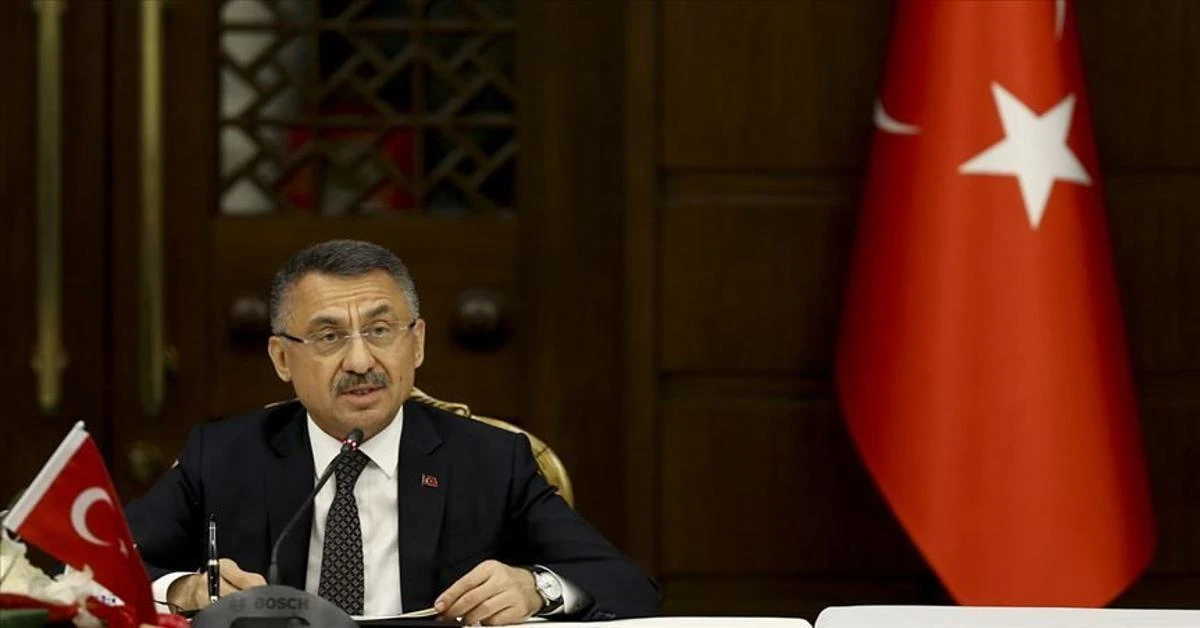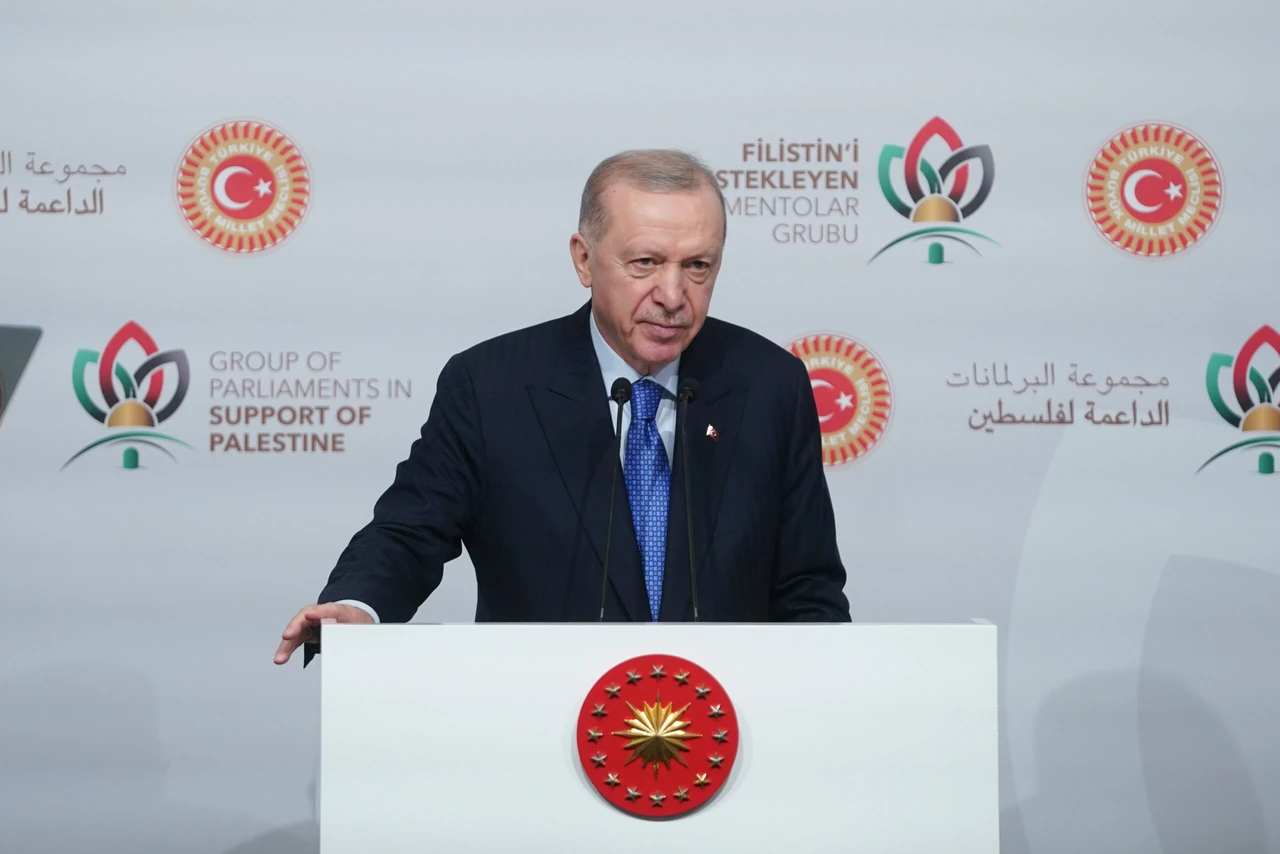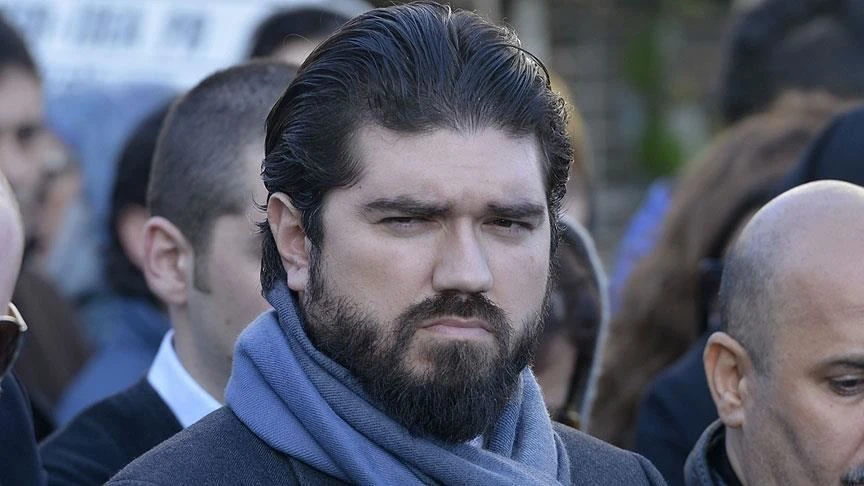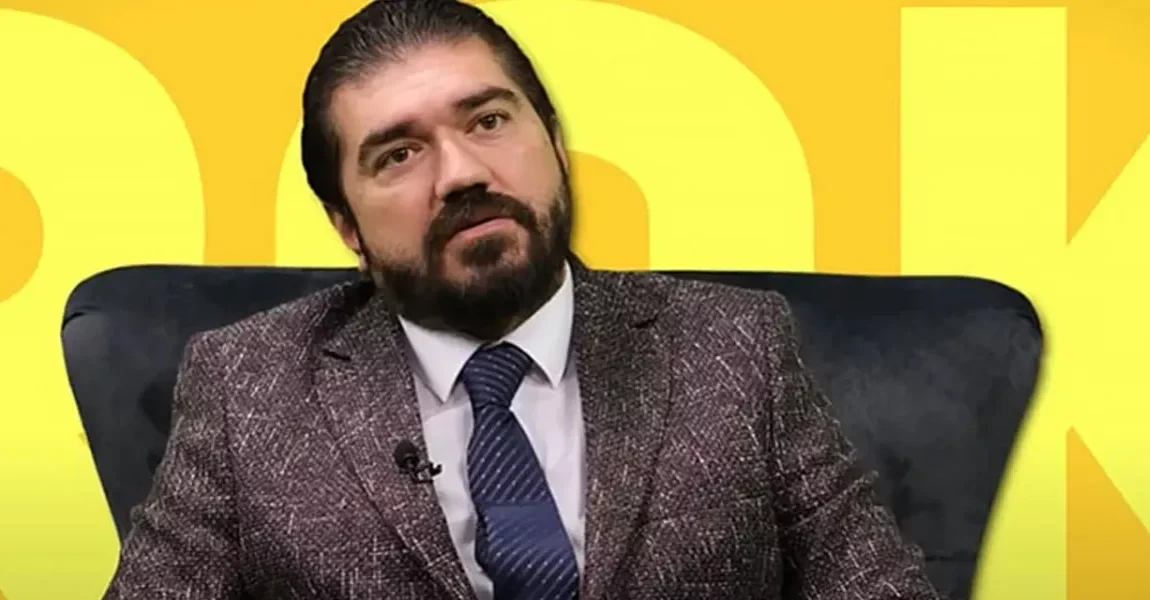Fuat Oktay conducts talks in Norway on Palestine, Turkish Cyprus

Chairman of the Turkish Parliamentary Foreign Affairs Committee, Fuat Oktay, stated that during their visit to Oslo, Norway, they held significant and productive meetings on various issues, including the recognition of the State of Palestine, the Turkish Republic of Northern Cyprus (TRNC), the Russia-Ukraine War and counterterrorism.
Oktay provided details about the committee’s two-day visit to Norway in an interview with an Anadolu Agency (AA) correspondent at the official residence of Türkiye’s Ambassador to Oslo.
He noted that the meetings with Norwegian officials and parliamentary committees were intensive and productive, contributing positively to Türkiye-Norway and regional relations.
Oktay highlighted two main topics discussed during the meetings:
‘Recognition of Palestine, lobbying efforts’
“The first issue was the Gaza-Palestine situation. Norway has decided to recognize Palestine, which will be officially implemented on (May) 28. It was a coordinated decision with Ireland and Spain, but it emerged during the talks that more countries might follow suit, which is encouraging,” Oktay said.
Oktay stated that Türkiye advocates a three-phase plan regarding the recognition of Palestine, noting: “In our discussions, we see agreement on three points: first, achieving a permanent cease-fire as soon as possible, secondly, ensuring uninterrupted humanitarian aid to Palestine, and thirdly, reaching a permanent solution based on a two-state solution. This is a solution that benefits both Palestinians and Israelis and can ensure the security of both nations.”
He emphasized the process initiated in Norway to evaluate the necessary reforms for Palestine’s organization and structuring as a state would continue.
“On May 26, there will be a meeting chaired by Norway and the European Union (EU) with the participation of the Organisation of Islamic Cooperation (OIC), and our Foreign Minister will be present. Subsequently, based on the developments here, a second meeting will be held with the OIC, Arab countries and EU countries to implement the two-state solution and initiate a new process. Türkiye will be actively involved in this process. Our Foreign Minister will also participate in this meeting. The exchange of views on this topic was extremely beneficial,” Oktay added.
‘Challenges faced by Turkish Cypriots’
The second topic discussed was the TRNC issue. “Again, we found a warm reception from the Norwegian government and the parliament. The Foreign Minister (Espen Barth Eide), who previously served as the United Nations (U.N.) Special Representative for Cyprus is well-acquainted with the process and the problem. The challenges Turkish Cypriots face, especially in embargoes, are significant. We expressed our desire and wish to end these embargoes, and we do so wherever we go. The response we received from the Minister was very satisfactory,” Oktay explained.
Oktay shared further details, saying that the Minister, who was involved in the Crans Montana process, stated that Türkiye and the TRNC have done everything for a solution, but the other side remained uncooperative.
“It is not surprising that Türkiye now advocates for a solution based on two independent sovereign communities rather than a federation. We see a positive stance on lifting the embargoes on Cyprus. We can work together in many areas on this issue,” he added.
“Our other main agenda items were counterterrorism and the Russia-Ukraine issue. We discussed the PKK and its extensions in Syria and Iraq, PYD/YPG, and, of course, the FETO issue. We brought up cooperation on these matters and exchanged views. We emphasized the importance of counterterrorism efforts and that embargoes should not be an issue among NATO allies. We observed positive approaches from both our parliamentary counterparts and the Foreign Ministry, which is pleasing,” Oktay continued.
‘Türkiye, a significant actor in the region’
Oktay reiterated Türkiye’s stance on the Russia-Ukraine issue, stating: “We are a country that recognizes Ukraine’s independence and territorial integrity. We are among the countries that do not recognize the occupation of Crimea. However, we emphasize that there is a war, a problem, and a conflict in the region. To stop this conflict, healthy communication with both sides must continue.”
“Therefore, we see Türkiye as the country that can maintain this healthy communication. Despite differing opinions, everyone acknowledges that Türkiye is a significant regional actor. We saw the same approach in Norway,” he added.
Oktay mentioned that they also exchanged views on several regional issues, including the Azerbaijan-Armenia issue.
“One of the topics was the Azerbaijan-Armenia issue. After resolving the Karabakh conflict, they are perhaps closer than ever to a peace agreement for regional development and stability. Our position has always been that peace is closer when the two countries negotiate without involving others. We sought the support of all Western countries to encourage Armenia towards this peace agreement. We expressed our views on keeping Azerbaijan involved in every discussion. I can say that we received a positive and warm response,” he noted.



